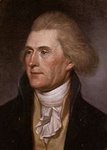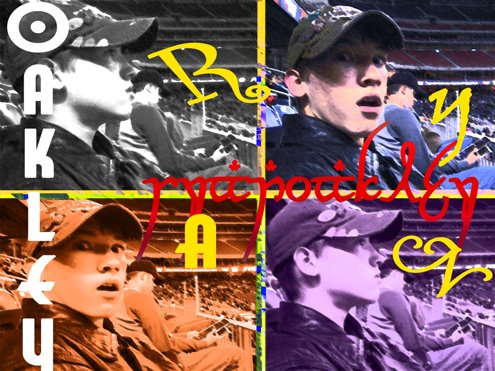
Leonardo da Vinci
From Wikipedia, the free encyclopedia
Self-portrait in red chalk, circa 1512 to 1515.[1]
Birth name Leonardo di Ser Piero
Born April 15, 1452
Flag of Italy Anchiano, Florence, Italy
Died May 2, 1519
Amboise, Indre-et-Loire, France
Nationality Italian
Field Many and diverse fields of arts and sciences
Movement High Renaissance
Famous works Mona Lisa, The Last Supper, The Vitruvian Man
The Mona Lisa
The Mona Lisa
Leonardo di ser Piero da Vinci (pronounciation (help·info), April 15, 1452 – May 2, 1519) was an Italian polymath: scientist, mathematician, engineer, inventor, anatomist, painter, sculptor, architect, musician, and writer.
He was born and raised near Vinci, Italy, the illegitimate son of a notary, Messer Piero, and a peasant woman, Caterina. He had no surname in the modern sense, "da Vinci" simply meaning "of Vinci". His full birth name was "Leonardo di ser Piero da Vinci", meaning "Leonardo, son of (Mes)ser Piero from Vinci."
Leonardo has often been described as the archetype of the "Renaissance man", a man whose seemingly infinite curiosity was equalled only by his powers of invention. He is widely considered to be one of the greatest painters of all time and perhaps the most diversely talented person ever to have lived.[2]
It is primarily as a painter that Leonardo was and is renowned. Two of his works, the Mona Lisa and The Last Supper occupy unique positions as the most famous, the most illustrated and most imitated portrait and religious painting of all time. Their fame is approached only by Michelangelo's Creation of Adam. Leonardo's drawing of the Vitruvian Man is also iconic.
As an engineer, Leonardo conceived ideas vastly ahead of his own time, conceptually inventing a helicopter, a tank, the use of concentrated solar power, a calculator, a rudimentary theory of plate tectonics, the double hull, and many others. Relatively few of his designs were constructed or were feasible during his lifetime.[3] Some of his smaller inventions such as an automated bobbin winder and a machine for testing the tensile strength of wire entered the world of manufacturing unheralded.
He greatly advanced the state of knowledge in the fields of anatomy, civil engineering, optics, and the study of water. Of his works, perhaps 15 paintings survive,[4] together with his notebooks, which contain drawings, scientific diagrams, and notes.
<---Posts--->
------------------------------------------------------
Wednesday, May 16, 2007
Subscribe to:
Post Comments (Atom)













No comments:
Post a Comment